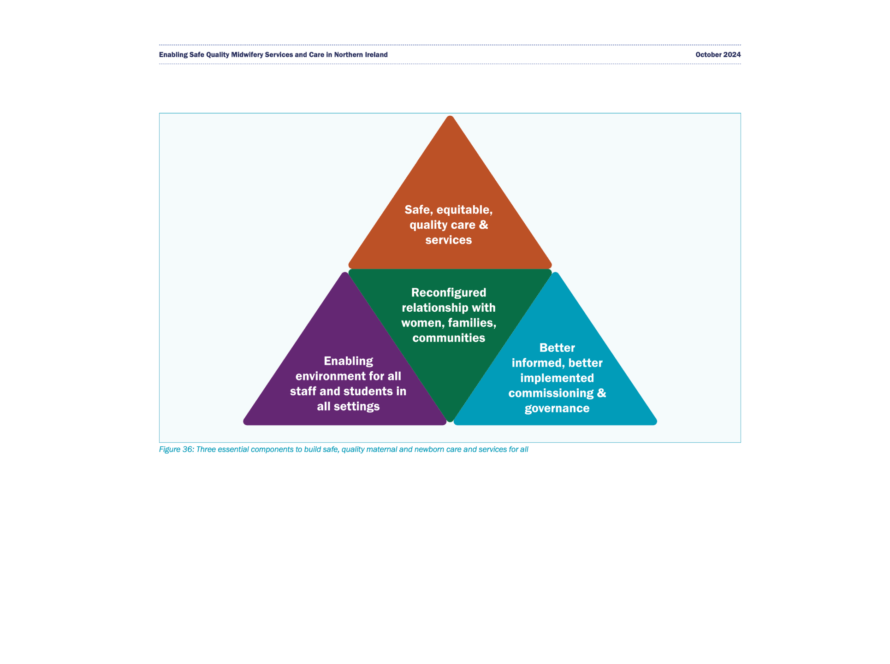If you are pregnant, you have probably been making decisions about a lot of things, from what you will name your baby, what kind of cot or car seat you will buy to when you will go off on maternity leave. But what about making decisions about your care during pregnancy, labour and birth.
As a birth worker, I talk a lot about, and really encourage, the pregnant women I work with to make the decisions that are right for them. A really good way to do this is to make a birth preferences list, discussing things with your partner so that they are aware of your wishes for labour, can help you to achieve them and can advocate for you if needed.
So why is it important to make these decisions, your decisions? One of the main reasons is that it gives you a sense of control over your birth experience. Research has shown that having a sense of control over decisions that are made in childbirth can impact on a woman’s experience. As labour can be unpredictable, women often go in thinking they will ‘go with the flow’. Unfortunately, this can mean that if their labour pathway changes, control over their birth can be taken out of their hands and decisions made for them. This can contribute to a negative experience, and lead to feeling disconnected from the experience or an increased risk of postnatal mental health issues.
A woman in labour needs to be in an environment where she feels safe and calm, with the thinking part of her brain quietened down, so that the hormonal physiological process of labour and birth can progress smoothly. She needs to be in what I call her ‘birth bubble’. By fully considering all of your options prior to labour, you can take your time to decide what is right for you and how you would like your labour to go, not only making an ideal birth plan, or Plan A, but also a Plan B and Plan C as well. In this way, if things change in labour you are not making decisions about something that you are considering for the first time, and you can remain in control of your birth.
How confident, though, do you feel making decisions about things that you don’t know very much about? Pregnancy and birth can feel like jumping in to the unknown, particularly for first-time mums, so how do you know you are making the right choices? In reality there is no right or wrong answer; it is all about deciding what is right for you. And what is right for one woman is not necessarily right for another woman.
As the Positive Birth Movement says ‘a positive birth does not have to be ‘natural’ or ‘drug free’ – it simply has to be informed from a place of positivity as opposed to fear’. Every woman deserves to have a positive birth experience, whatever path their birth may take. What I take from this statement, though, is that a positive birth needs to be informed, meaning the woman is given accurate, evidence-based information and is empowered to take control and be supported to make her own decisions. So, whether it’s a sweep or induction or vaginal examinations during labour, a woman should be fully informed of the pros and cons, and the alternatives so that she can decide which path is right for her. By creating your birth preferences, you have the time to gather information about all of the options that are available to you in pregnancy and birth. A useful decision-making tool is BRAIN, an acronym that stands for Benefits, Risks, Alternatives, Instinct, Nothing. This tool can also be used during labour, if things change; real ‘blue light’ emergencies in labour are not the norm so there is always time to consider and talk through things with your birth partner so that you remain in control of your birth.
Something to consider is what influences your decision making? Do you focus on ‘fact’, reading everything you can about labour and birth and making decisions based on the evidence?

Are you swayed by ‘folk’, friends and family members who have had babies and are willing to share their experiences, both negative and positive, and give advice? Or do you follow your ‘feeling’, going with gut instinct when making decisions. More than likely you fall somewhere in the middle of the triangle, maybe leaning towards one point, but influenced by all three factors. It is important to acknowledge these influences on decision-making, while ensuring that you are making your own decisions. Every woman is different and every birth is different, so advice from one person may not be right for you. Modern medicalised maternity care has contributed to women forgetting how to trust their bodies and their own instincts. Birth is an innate physiological process that women’s bodies are designed for, so doing something that doesn’t sit right with your gut feeling may be the wrong thing for you. And when you are following fact, consider where you are getting your information from, make sure that you are fully informed with up-to-date evidence-based information.
Most importantly, ask questions, think about things, and make informed decisions – it puts you in the driver’s seat, helping you to maintain control in labour, play an active role in your experience and ultimately contributes to a positive, empowering birth experience and a wonderful start to life with a new baby.




